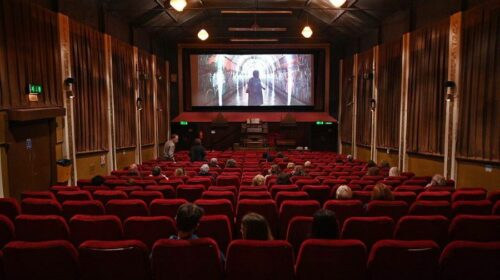‘Chinese WeWork’ UCommune Reports Huge Losses, Sees Dark Days Ahead

Falling demand for office spaces during Covid-19 and massive goodwill depreciation lead to record-breaking losses for the coworking operator
Key Takeaways:
- UCommune breaks new net-loss record in 2021 and has burned through 4 billion yuan in the past four years
- Huge losses indicate the company still has a long way to go in terms of asset-light transition
By Wang Chuan
Co-working operator UCommune International Ltd. (UK.US), dubbed the “the Chinese WeWork,” recorded a massive loss of 2.13 billion yuan ($333.7 million) for 2021, the company said earlier this month. Most of the loss – $258 million – came in the fourth quarter ended Dec. 31, 2021, as demand for offices declined during the Covid-19 pandemic.
Losses during the first three quarters of 2021 were 127 million yuan, 136 million yuan and 182 million yuan – relatively modest compared with the huge loss of nearly 1.7 billion yuan in the fourth quarter. UCommune recorded 1.5 billion yuan in goodwill impairment losses in the fourth quarter of 2021, up from zero in the year-ago quarter. It said that the asset value of the three units of operation included in the report registered fair value lower than their book value due to the pandemic and that the depreciation of long-term assets and long-term deferred expenses also rose nearly three times, reaching 115 million yuan, due to the possibility that its long-term asset investment might not be recovered.
Betting on the asset-light model
In 2021, the company made 1.06 billion yuan in total revenue. Co-working membership revenue fell by 10.9% for the third consecutive year to 377 million yuan reflecting consistent decline in demand. Its marketing and brand service revenue jumped 46.1% to 463 million yuan and revenue from other services increased 58.4% to 217 million yuan.
The company has been shifting from a self-operating model to an asset-light model since 2020 to help turn a profit. The self-operating model involves buying office buildings and retrofitting them to rent them out. This model requires huge up-front investment, and the company carries the risk of not being able to rent out the buildings. UCommune’s figures showed that the occupancy rate of its office spaces is 70%, showing that the risk of not having enough tenants is all too real.
The asset-light model, on the other hand, involves franchising office spaces with UCommune providing space design, construction and management services, meaning the company does not need to invest huge capital up front to rent new office spaces.
At the end of 2021, UCommune’s total number of spaces contracted under its asset-light model increased by 32% to 165 spaces in 55 cities from 125 spaces in 46 cities at the end of 2020. In the fourth quarter, revenue from the asset-light model increased nearly 79% to 19.3 million yuan from 10.8 million yuan in the year-ago quarter,
CEO Guan Xin said that the company would continue to explore the asset-light model to enhance operational efficiency, adding that the company would create new products in the consumer service field, offer additional marketing and advertising solutions and develop digital real-estate management systems.
Share price plunged 98%
Huge losses in the past years indicate that UCommune’s transition efforts are still falling short. The company has seen losses grow since 2018 and has accumulated 3.92 billion yuan in net losses and has not yet turned a profit.
Investor patience is running out. UCommune, which listed on the Nasdaq in November 2020 through a special purpose acquisition company (SPAC), has seen its share price tumble, closing at $3.34 earlier in May, giving the company a valuation of $14.6 million. To avoid being forced to exit the market for a share price consistently below $1, the company combined 20 common shares into one on April 21. So, its share price is already 98% below the closing price on the day of its listing in 2020. Investors who bought in early have suffered major losses.
Founder Mao Daqing said in a speech in 2020 that the company was going through its toughest moment in five years, but little did he know that the worst was yet to come. “Looking around, we find ourselves so lonely. Many peers who we competed or collaborated with are gone,” he said at the time.
In the industry, UCommune is not the only one in distress. The business model of co-working seems to have hit a bottleneck with repeated pandemic resurgence and economic downturn. The pandemic has galvanized working from home, replacing traditional brick-and-mortar office working.
In fact, even the world’s biggest co-working space operator WeWork (WE.US) had an occupancy rate of 63% at the end of 2021. WeWork’s latest price-to-sales (P/S) ratio is 1.74 times, much higher than UCommune’s 0.07 times, which might suggest investors’ concerns about the latter’s future and prospects.
To subscribe to Bamboo Works weekly free newsletter, click here





